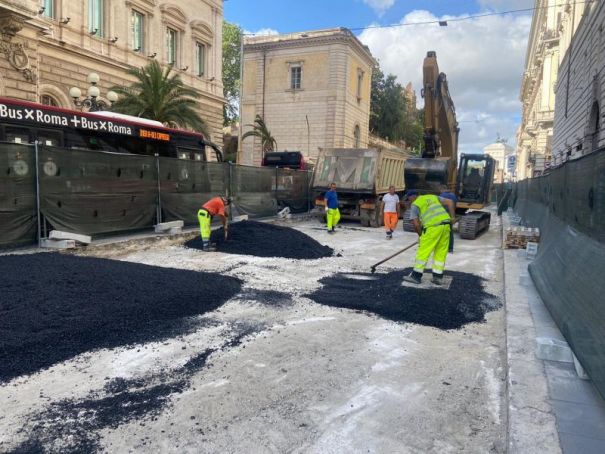Rome swaps cobbles for asphalt, and vice-versa, on streets in the city centre, causing much debate in the capital.
Rome's historic cobblestones are in the news again as the mayor Virginia Raggi continues the city's project to dig up and relocate the 'sampietrini' from a number of prominent streets in the centre.
Works are underway on Via Nazionale, a busy central thoroughfare, where the iconic basalt stones are being dug up and replaced with more traffic-friendly asphalt.
The mayor says the newly-tarmacked Via Nazionale will be safer for motorbikes and mopeds, adding that when the works are finished the street will have a new bicycle path.
The traditional sampietrini, or sanpietrini, have already been removed from the nearby Via IV Novembre where a thin strip of cobbles remains along the side of the road as a reminder of the past.
The cobbles are set to be taken from other busy streets too, including Viale Aventino near the Circus Maximus, and moved to streets with little or no traffic, notably Via del Corso.
The sampietrini will remain however in the central Piazza Venezia which has recently been repaved.

The removal of the cobblestones - despite their subsequent redeployment elsewhere - has led to objections from traditionalists and some local politicians who throw about terms like "barbarians" and "sacrilege."
Tourists and visitors to Rome have also voiced their concerns that part of the city's heritage is being lost.
The plan, however, is perfectly acceptable to many of the city's residents who say that heavy traffic and a lack of maintenance renders the sampietrini a dangerous and outdated form of road surface for the modern era.
Roman drivers have a love-hate relationship with the cobblestones which are particularly treacherous for motorini, especially when it rains, and they make for a bumpy drive in cars and buses.
The connection between Rome and the sampietrino dates back to the end of the 16th century when they were first used in the area around St Peter's - hence their name - under the pontificate of Sixtus V.
1) Rome's cobblestones are in the news as the city removes the iconic ‘sampietrini’ from Via Nazionale, a busy thoroughfare in the centre, replacing them with more traffic-friendly asphalt. pic.twitter.com/jt4FxJ8nLN
— Wanted in Rome (@wantedinrome) August 13, 2021

















